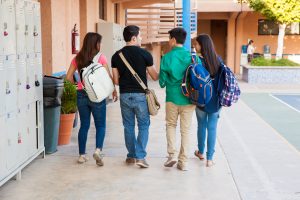In October, California passed the first law in the nation mandating later school start times for middle and high school students. Scheduled to be phased in over time, the law requires public middle schools to begin classes at 8 a.m. or later and high schools to start no earlier than 8:30 a.m.
The later start times are designed to offer teens the additional sleep time they need for optimal health and wellbeing. In 2017, the American Academy of Sleep Medicine (AASM) published a position statement supported by several medical societies, including the American Academy of Pediatrics, recommending delaying school start times.2 According to sleep experts, teenagers aged 13-18 need 8-10 hours of sleep daily, but most get less than that. The consequences of insufficient sleep are well documented and include poor school performance, increased mood problems, obesity, athletic injuries, and safety issues such as unhealthy risk-taking behaviors and an increased risk of car accidents.
Carol Rosen, MD, member of the AASM Board of Directors, explained that delaying school start times makes sense because getting more sleep on the opposite end, by having teens go to bed earlier in the evening, does not match their biological clocks. Dr. Rosen is medical director of pediatric sleep services at University Hospitals Rainbow Babies & Children’s Hospital in Cleveland, Ohio.
“Teens have a shift in their biological clock,” she said. “This shift results in teens not being able to fall asleep earlier, so if you couple that with early school start times it is a recipe for problems.” Data show that teens typically have difficulty falling asleep before 11:00 p.m. because of delayed circadian rhythm in puberty that contributes to later sleep onset, according to the AASM.
Dr. Rosen said otolaryngologists should ask patients about their sleep schedules. “When you’re doing an evaluation of a child who is sleepy and having trouble waking up, but they aren’t snoring and their tonsils are not big, the source of the sleepiness may be that they aren’t getting enough sleep,” she said. Adjusting school start time is one of the biggest modifiable variables available to address this, she added.
Communities that have already implemented delayed school start times have reported improved outcomes for children. One study of 30,000 high school students enrolled in 29 schools found that school attendance rates and graduation rates improved significantly in schools that delayed starting times to 8:30 a.m. or later.
